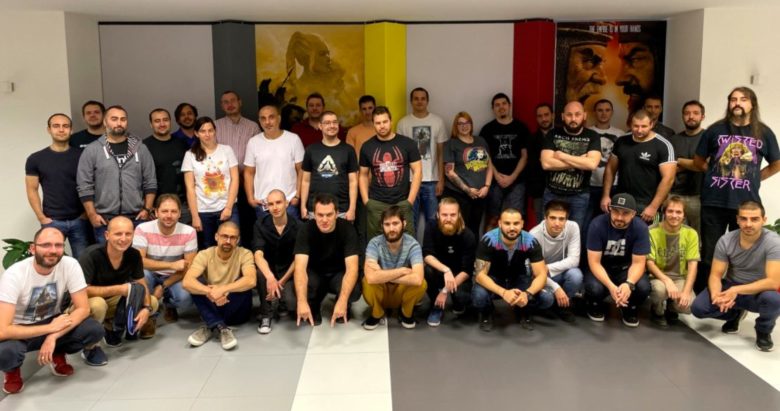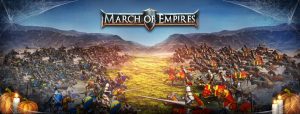Gameloft Bulgaria: How To Deserve Your Independence Within One of the Biggest Gaming Companies in the World

This article contains an affiliate link to our partner hiring platform Noble Hire. Тhe material is, however, editorial. This series of company profiles aims to present carefully selected tech companies that offer opportunities. By clicking the affiliate link and signing up for Noble Hire, you automatically increase our chance for financial sustainability.
Gameloft is one of the global leaders in gaming with an HQ in France, 49 offices all over the world, just under 4000 employees, and hundreds of games on the market that brought the company €260M in revenues last year. What does it mean and is it possible at all to have independence in such a structure?
In 2005, before the mobile phones were that smart and there were a dozen operating systems, 50 people in Sofia were ensuring Gameloft’s games, developed in Bucharest, could be played on all different devices on the market. In its early days, Gameloft Bulgaria was a satellite porting studio adjusting the already developed games for different operational systems. Fifteen years later, the same entity is a fairly independent studio in a network of entities in 23 countries and with hundreds (check how many) games on the list. It is one of the ten-game development divisions in a company, has over ten titles on the track record responsible for some of the company’s top strategy games and also security innovations, and has a new ambitious and disruptive project that will be announced next year. But what brought them here?
“It’s been one of the toughest battles. We first had to prove that we are good enough so that the HQ started giving us bigger and bigger projects. We received the first big projects in 2008. The emergence of iOS and Android and becoming the major operating systems was definitely a boost for us too. And so step by step, experimenting with approaches and games, we managed to gain a fair share of trust and independence. Probably one of the latest big achievements was that we almost closed the cycle bringing in also marketing into the Bulgarian operations. The only thing that is not happening in Sofia are the sounds,” Tanko Shokerov, the studio manager of Gameloft Bulgaria summarizes the story.
The local branch specializes in massive online strategy games and mobile games for iOS. The two active titles it currently has – March of Empires and War Planet Online, are played by around 200K people every day. Next year, the Sofia based studio plans to unveil a new ambitious project, which has been in development for quite some time now and promises to surprise the gaming community.
Theory, practice, and myths about mobile game development
Most of us imagine the office of gaming companies as a creative and playful space with joysticks and consoles laying around where people have the freedom to play the newest titles, to have fun, or get inspired. Yes, indeed in the offices, at least while the office was the primary working space for Gameloft, the situation didn’t look much different. At the end of the day, in order to come up with new game ideas, one needs to explore what’s out there. Yet, if playing around was the way game ideas used to be generated some years ago, it’s not the norm anymore. “We make sure we approach ideas with a healthy dose of criticism and test very diligently. When we’ve agreed that we’ll develop a game or even a feature, we test, gather data, test again, gather more data, and only then release,” explains Shokerov. This is the case also with their newest veiled in mysticism project that will be announced next year. “We have almost full creative freedom, of course, as long as the data agrees, which usually makes the HQ agree too,” he smiles.

Gameloft Bulgaria has a team of around 200 people – most of them are software developers, artists, designers, but there are also management, marketing and communications roles. Depending on the game (there are two active and one in development right now) the team set up is different. For instance, the team of March of Empires, the oldest game of the local studio, has not so many developers who know the system very well, but more illustrators and support people. The only thing that is not done in the local office is sound and voice. For the title that is yet to come, Gameloft Bulgaria will be hiring also community managers, product managers, illustrators, designers. Of course, developers with a passion for problem-solving are always in demand. According to the producer, the unique selling point for talent in gaming companies is neither the compensation, nor the tech stack (except for the own engine, there’s nothing too unexpected), but the problem-solving element. “The problems you face on an everyday day basis at a gaming company are very different from what happens in a typical IT company, the dynamics and the fact that everything happens real-time is what keeps your brain fit,” he explains.
Of failing and succeeding
There are challenges all the time. In 2015 Gameloft published the game March of Empires, the game that the Bulgarian branch is still most proud of. On the one hand, the strategy game was greatly received by the audience and is still played by hundreds of consumers a day. What is even more interesting to this game is that it was the first server real-time authoritative mobile game – “an achievement we are very very proud of”. The game was released before the cloud was such a commodity so it was a fairly innovative technology, developed by the Bulgarian team and later adopted in many games across Gameloft. “This makes a game practically almost invulnerable to hackers. And we know, no one can ruin a game the way a hacker can,” Shokerov says.
Where there is innovation and there is a fast pace, there’s also a fair share of failure and learned lessons too. The biggest failure for Gameloft Bulgaria was the release of Age of Sparta. The game was an ancestor of World at Arms and had also inherited an exploit that the team didn’t discover on time. Once the game was out, players quickly realized the bug and started exploiting it. “So we stopped the game to fix the bug and this practically killed it. This is how we learned to communicate and the reason we have community managers today,” Tanko Shokerov remembers laughingly.
And this is not all. Gameloft Bulgaria has been through a lot: from skipping the market research and following the fantasies of the team, to not knowing how the different environments and routes in car racing games are developed. The team has also learned a lot that now is all flowing into the new ambitious project and the further development of the company.
What’s next?
With such a development in the past 15 years, and continuing to grow, despite the French gaming company is cutting studios here and there, one would expect very ambitious goals. To a certain extent they are – at least when it comes to the title Shokerov is talking about all the time without giving any details. But when it comes to the business he is more conservative. “Back in the days we were striving for creative freedom and to close the whole production cycle in Sofia. We’ve achieved it,” he states. Now, the efforts are focused on the new title and the planned hiring. Other than that, the studio leader says only “we want to develop the people on the team and go with the flow once the new project is out”.
This may also interest you:
Game Studios In Bulgaria: Who Is Who In Ten Words
Martin Kadinov About the Entrepreneurial Spirit in Esports and Gaming in Southeastern Europe
The Bulgarian Game Dev Industry Consists of Micro Studios and is Specialized in Desktop Games




























